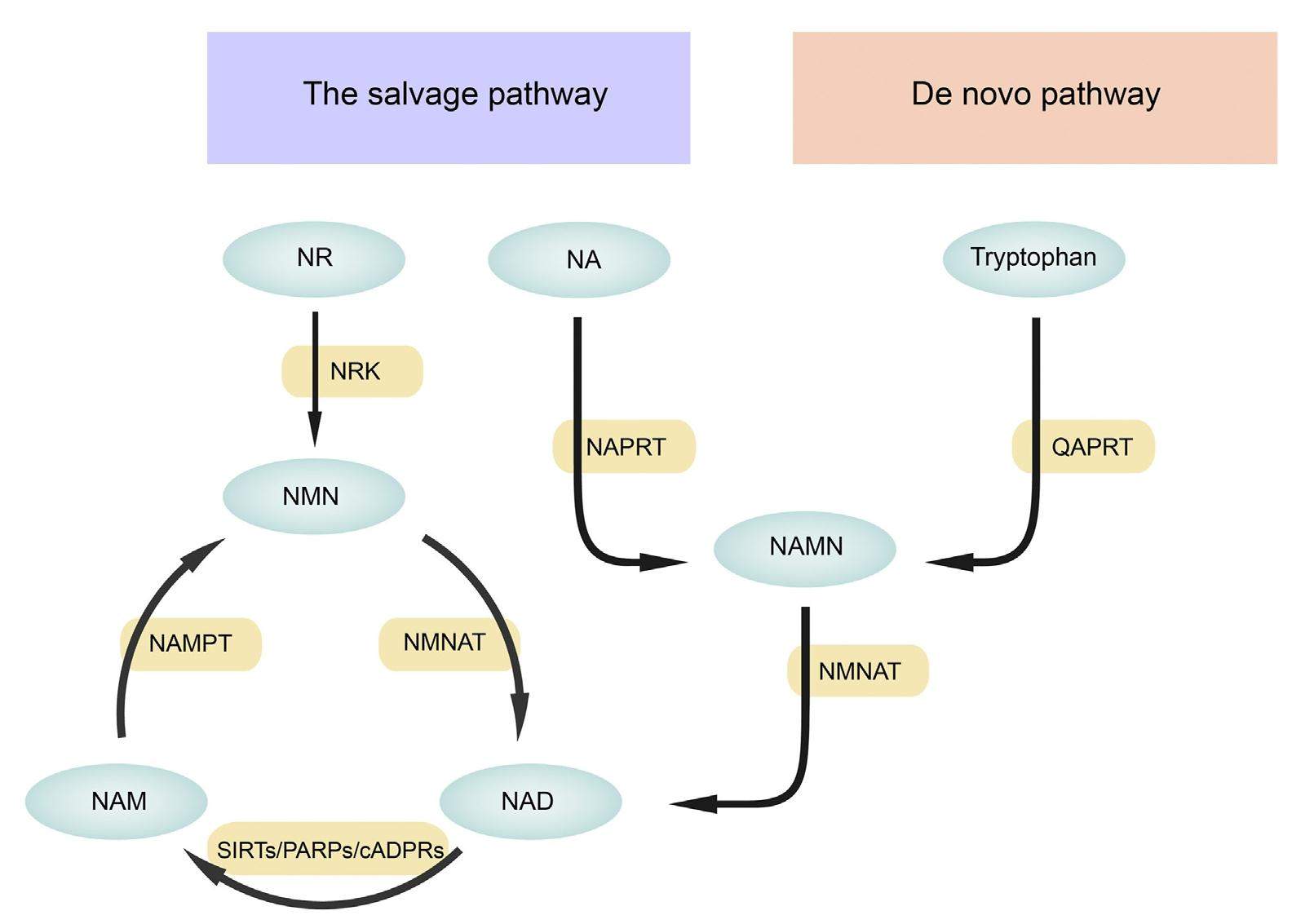
The effects of nicotinamide adenine dinucleotide in cardiovascular diseases: Molecular mechanisms, roles and therapeutic potential


Recently, cardiovascular diseases (CVDs) were identified as the leading cause of mortality, imposing a heavy burden on health care systems and the social economy. Nicotinamide adenine dinucleotide (NAD+), as a pivotal co-substrate for a range of different enzymes, is involved in many signal transduction pathways activated in CVDs. Emerging evidence has shown that NAD+ can exert remediating effects on CVDs by regulating metabolism, maintaining redox homeostasis and modulating the immune response. In fact, NAD+ might delay ageing through sirtuin and non-sirtuin pathways and thus contribute to interventions for agerelated diseases such as CVDs. Considering that robust clinical studies of NAD+ are ongoing, we discuss current challenges and the future translational potential of NAD+ based on existing studies and our understanding. Despite some remaining gaps in its clinical application, NAD+ has been shown to have broad prospects and pan-effects, making it a suitable prophylactic drug for CVDs.
